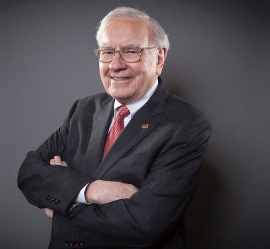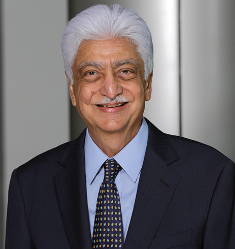Why Philanthropy Practices are Important for Leaders
By Thanuraj, Correspondent at Global Leaders Insights

Philanthropy has long been recognized as a key driver of social change, and for leaders in all fields, whether in business, politics, or the non-profit sector practicing philanthropy is not only a moral duty but also a strategic imperative. Philanthropy involves giving back to the community, supporting charitable causes, and contributing resources to help those in need. Leaders addressed society's most pressing issues, such as poverty, education, healthcare, and environmental sustainability. Philanthropic practices are not just beneficial to society, they also bring substantial advantages to leaders and their organizations. Leaders can thus leave a legacy and contribute towards the good of all in society by actively undertaking philanthropic activities. This article explores why philanthropy is essential for leadership in the modern world.
1. Social Responsibility and Giving Back
Leaders engaging in philanthropy will harness their influence and resources toward effecting change in social matters. This is a public service activity focusing on the part of the leaders, showing that leadership has much beyond profit or self-gain but insists on giving back to society. The moral responsibility portrayed in this helps create trust and a good image as people are more inclined to rally around leaders showing concern about the wider society.
2. Strengthening Relationships and Building Networks
Philanthropy activities are often partnered with other organizations or individuals with similar values and purposes by leaders while doing them. This is often a way to create a deeper connection with other people, thus producing stronger relationships professionally, greater loyalty for their efforts, and more investment in their initiatives.
3. Enhancing Organizational Reputation
Philanthropic leadership can do wonders for the reputation of an organization. It is far easier to find organizations and businesses whose contributions to social causes speak favorably about their clients, investors, and employees. Obviously, you can always recruit the best from the rest and keep customers happy while also gathering loyal investors as part of the package for most companies that sell themselves as philanthropists.
4. Personal Growth and Leadership Development
Philanthropy for leaders is also growth at the personal level while developing leadership skills. A leader gains firsthand experience of the challenges facing communities and the difference that his/her work makes through engagement in causes that one is passionate about. In this way, hands-on experience makes them more empathetic and compassionate. The lessons learnt through philanthropy apply to business or organizational leadership in making better decisions and modeling inspirational patterns for others.
5. Long-Term Impact and Legacy
Leaders can owe their ability to create a legacy through philanthropy. The favorable activities for which a person is remembered often relate to causes to which he has contributed and issues that are closely aligned with his value system. Through philanthropy, leaders can start to build a meaningful heritage in practice that is a testament to their commitment to bettering the world. Such a heritage enhances the public's perception of the leader. It also helps reinforce the idea that leadership is less about personal gain and more about creating value for others.
Here is the list of the world’s top philanthropists
1. Jamsetji Tata
Amount Given: USD 102.4 billion
Contribution: Education and Healthcare
Jamsetji Tata, known as the "Father of Indian Industry," was a visionary entrepreneur who laid the foundation for several of India's largest and most successful businesses, including Tata Steel. However, his philanthropic legacy goes beyond his industrial achievements. Tata's most notable contribution to society was his commitment to education, healthcare, and the development of India's infrastructure.
2. Bill Gates 
Amount Given: USD 75.8 billion
Contribution: Healthcare, Extreme poverty, Education, and access to Information technology
Bill Gates, co-founder of Microsoft, is one of the most familiar faces in modern philanthropy. Gates eased from his daily role in Microsoft and then turned towards philanthropy to start the Bill and Melinda Gates Foundation in 2000. The charity is one of the largest in the world, focusing on health improvement, poverty reduction, educational expansion, and access to information technology. Through his efforts, Gates has had a profound impact on global development, aiming to create a more equitable and sustainable world.
3. Warren Buffet
Amount Given: USD 46.1 billion
Contribution: Healthcare, Education, AIDS prevention, and Sanitation
Warren Buffet is one of the most generous philanthropists, and has pledged to donate more than ninety-nine percent of his wealth. The selfless nonagenarian donates annual billions of dollars to running Bill and Melinda Gates Foundation and co-founded with ‘Gates The Giving Pledge’. The initiative encourages billionaires to commit a significant portion of their wealth to philanthropy, inspiring others in the wealthiest circles to follow suit.
4. George Soros
Amount Given: USD 32 billion
Contribution: Healthcare, Anit-fascist publications, Human rights, Economic, and Legal and social reform
American financier George Soros, a philanthropist, is known for being an expert in international financial markets and being active in the promotion of democracy and human rights, as well as social justice. Soros has spent billions through his Open Society Foundations for democratic governance, human rights and education reforms around the globe. His philanthropic actions focus mainly on political and social changes in Eastern Europe, Asia, and Africa. While admired for his charitable contributions, Soros has also been a controversial figure due to his political influence and economic strategies.
5. Azim Premji 
Amount Given: USD 21 billion
Contribution: Education and Healthcare
Azim Premji is the founder of Wipro and one of the biggest entrepreneurs in the world of technology. His marvelous efforts at work in philanthropy made him famous, especially concerning education. As early as 2010, he established the Azim Premji Foundation, aimed at transforming the quality of education in India. Premji has given away billions of dollars in the last few years to support educational initiatives to reach poor children and provide them with quality learning resources.
Conclusion
Philanthropy has many facets as witnessed in Jamsetji Tata, Bill Gates, Warren Buffett, George Soros, and Azim Premji from education and health to social justice and economic empowerment. All of these men have tried with their riches and powers to find solutions to some of the most disturbing problems, with their contributions carrying on shaping broad global contributions to philanthropy. Such legacies are meant to inspire the generations to come who are to follow this path of philanthropy and prove that giving can really change the world for the better.
.jpg)



